Bluesmart Em 4.5Ton 3.815-Meter Single-Row Pure Electric Flatbed Light Truck
| Drive form | 4X2 |
| Huila huila | 2900mm |
| Box length level | 3.8 mika |
| Vehicle length | 5.605 mika |
| Vehicle width | 1.97 mika |
| Vehicle height | 2.15 mika |
| Total mass | 4.495 mau tona |
| Rated load | 2.185 mau tona |
| Vehicle weight | 2.18 mau tona |
| Maximum speed | 90km/h |
| Factory-standard cruising range | 305km |
Māhele: Kaʻa ʻEletric Cargo
Tag: electric flatbed light truck
HOOLAHA
ʻO ka Bluesmart Em 4.5Ton 3.815-Meter Single-Row Pure Electric Flatbed Light Truck is a modern and efficient vehicle designed for a variety of transportation tasks, with a focus on urban and light industrial applications.
1. Electric Power and Capacity
- It is a pure electric light truck, which means it operates with zero emissions, contributing to a cleaner environment. It has a capacity to carry up to 4.5 mau tona, making it suitable for medium-duty cargo transportation.
- The 3.815-meter single-row flatbed design provides a versatile and practical loading area. It allows for the transportation of a wide range of goods, especially those that require a flat and open space for loading and unloading, such as construction materials, machinery parts, or bulky items.
2. Range and Charging
- The vehicle likely has a certain range on a single charge, which can be sufficient for local deliveries and short- to medium-distance transportation within a city or its surrounding areas. It is probably equipped with a charging system that enables convenient recharging, whether at home, at a workplace, or at public charging stations.
- The charging options may include standard AC charging and potentially faster DC charging capabilities, depending on the model, to minimize downtime and keep the truck operational for longer periods.
3. Wahi noi
- In urban areas, it can be used for transporting goods between warehouses, distribution centers, and retail stores. Its electric operation makes it well-suited for areas with strict emission regulations.
- It can also be utilized in construction sites or industrial settings to transport equipment and materials, thanks to its flatbed design and load capacity.
- For last-mile delivery services, the Bluesmart Em can efficiently carry and deliver various types of cargo to their final destinations.
4. Driver Experience and Comfort
- The interior of the cab is likely designed with driver comfort in mind. It may feature ergonomic seating to reduce fatigue during long drives, especially considering the typical usage patterns in urban and local transportation.
- The controls are probably simple and intuitive, enabling the driver to operate the vehicle easily. The quiet operation of the electric motor provides a more pleasant driving environment compared to traditional internal combustion engine trucks.
- The cab may also offer some basic amenities such as a storage compartment for personal items and a simple infotainment system for added convenience during the workday.
HIʻona
ʻO ka Bluesmart Em 4.5Ton 3.815-Meter Single-Row Pure Electric Flatbed Light Truck is a remarkable vehicle with a set of unique features that make it an excellent choice for various transportation and commercial applications, especially in urban and light industrial environments.
1. Electric Propulsion System
- Zero Emissions and Environmental Sustainability: As a pure electric vehicle, the Bluesmart Em offers a significant environmental advantage by producing zero tailpipe emissions during operation. This helps to reduce air pollution in urban and other areas, making it a great choice for businesses and organizations that are committed to environmental responsibility. It aligns with the global trend towards sustainable transportation and is suitable for areas with strict emission regulations.
- Power and Performance: The electric powertrain is designed to provide sufficient power to handle a 4.5-ton load capacity. It offers good acceleration and can easily navigate through different road conditions, including urban streets, highways, and some light off-road situations if needed. The motor is likely to be efficient and reliable, ensuring smooth operation and consistent performance. It may also incorporate advanced technologies such as regenerative braking, which helps to recover energy during deceleration and braking, thereby increasing the overall energy efficiency of the vehicle and extending its range.
- Quiet Operation: One of the notable advantages of an electric motor is its quiet operation. The Bluesmart Em runs quietly, reducing noise pollution in urban environments. This makes it more suitable for operations in residential areas, during early mornings or late evenings without causing excessive disturbance to the surrounding community. It provides a more pleasant driving experience for the driver and a quieter environment for pedestrians and nearby residents.
2. Cargo Space and Flatbed Design
- 3.815-Meter Single-Row Flatbed Configuration: The 3.815-meter single-row flatbed design provides a spacious and versatile loading area. The flatbed is ideal for transporting a wide range of goods that require a flat and open space for loading and unloading. It can accommodate items such as construction materials, machinery parts, bulky items, and even small vehicles in some cases. The single-row design allows for easier access to the cargo from the sides, facilitating loading and unloading operations. The flatbed may have a smooth and durable surface, ensuring that the goods can be loaded and unloaded smoothly without the risk of damage.
- Durable and Functional Flatbed: The flatbed is likely constructed with high-quality materials to ensure durability and strength. It can withstand the rigors of heavy loads and daily use. It may be equipped with features such as anti-slip surfaces to prevent the cargo from shifting during transportation. The edges of the flatbed may have railings or tie-down points to secure the cargo and ensure its safety during transit. The flatbed’s design may also consider the ease of cleaning and maintenance, ensuring that it remains in good condition over time. Eia hou, the flatbed may have a certain degree of flexibility in terms of load distribution and weight capacity, allowing the driver to optimize the transportation of different types of cargo.
- Ergonomic Design for Loading and Unloading: The vehicle is designed with ergonomics in mind to make the loading and unloading process as efficient and convenient as possible. The flatbed may have a low loading height, reducing the effort required to load and unload heavy items. The presence of ramps or other loading aids can further enhance the ease of operation, saving time and labor. The layout of the flatbed may also be optimized to allow for efficient stacking and organization of the cargo, improving the overall transportation efficiency. The design may also take into account the safety of the operator during the loading and unloading process, with features such as non-slip steps and handrails if necessary.
3. Battery and Range
- Battery Capacity and Range: The Bluesmart Em is equipped with a high-capacity battery that provides a decent range on a single charge. The range is crucial for its practicality in various transportation scenarios, allowing it to cover a significant distance within a city or for short- to medium-distance trips between different locations. The actual range can vary depending on several factors, such as driving style, road conditions, payload, and ambient temperature. Eia naʻe, it is designed to meet the requirements of typical urban and local delivery, as well as some light industrial transportation tasks. The battery management system may be advanced, ensuring the safety and longevity of the battery, and providing accurate information about the battery’s state of charge and remaining range to the driver.
- Charging Options and Convenience: The vehicle comes with a variety of charging options to suit different user needs and scenarios. It can be charged using a standard household electrical outlet, which is convenient for overnight charging at the depot or the driver’s residence. Eia hou, it is likely compatible with public charging stations, providing flexibility for quick top-ups during the day. Some models may also support fast-charging capabilities, allowing the battery to be charged to a significant percentage in a relatively short time. This reduces downtime and maximizes the vehicle’s operational availability, ensuring that it can be back on the road quickly and efficiently to meet the demands of transportation schedules. The charging interface may be designed to be user-friendly and easy to operate, with clear indicators and safety features.
4. Safety and Control Features
- Advanced Safety Systems: The truck is equipped with a range of safety features to ensure the safety of the driver, cargo, and other road users. It may include anti-lock braking systems (ABS), which prevent the wheels from locking up during braking, enhancing vehicle stability and control. Electronic stability control (ESC) systems may also be present to help maintain the vehicle’s stability in various driving conditions, especially during cornering or sudden maneuvers. Eia hou, it may have features such as a collision avoidance system or lane departure warning system to provide additional safety alerts and assistance to the driver, reducing the risk of accidents. The vehicle may also have a robust braking system with good stopping power and responsive brakes, ensuring safe braking in all situations.
- Precise Steering and Control: The steering system is designed for precision and responsiveness, allowing the driver to easily maneuver the vehicle in tight spaces and traffic. The controls are intuitive and ergonomically designed, ensuring that the driver can operate the vehicle with ease and confidence. The vehicle may have a well-tuned suspension system that provides a smooth ride and good handling, further enhancing the driving experience and safety. The vehicle may also have features such as a hill-start assist system, which prevents the vehicle from rolling backward when starting on an incline, adding an extra layer of safety and convenience, especially in hilly or inclined areas.
- Visibility and Lighting: Good visibility is essential for safe driving, and the Bluesmart Em is likely equipped with large windows and well-positioned mirrors to provide a clear view of the surrounding environment. It may also have high-quality lighting systems, including headlights, taillights, and turn signals, to ensure visibility during all lighting conditions, especially at night or in poor weather. The headlights may have features such as automatic on/off or adjustable brightness to adapt to different driving situations and improve visibility without blinding other road users. The vehicle may also have additional lighting features such as side marker lights and rear fog lights for enhanced visibility and safety.
5. Driver Comfort and Convenience
- Comfortable Cab Design: The driver’s cab is designed with ergonomics in mind to provide maximum comfort during long working hours. The seating is adjustable to fit different body sizes and preferences, and it is likely designed to provide good lumbar support to reduce fatigue. The cab may also be insulated from noise and vibration, creating a quieter and more pleasant working environment for the driver. The interior may be equipped with amenities such as a climate control system to maintain a comfortable temperature inside the cab, regardless of the external weather conditions. The cab may also have a spacious and well-designed layout, providing enough room for the driver to move and operate comfortably.
- Intuitive Instrumentation and Controls: The dashboard and controls are designed to be user-friendly and intuitive. The driver can easily access and operate essential functions such as the speedometer, battery level indicator, and charging status display. The infotainment system, if available, may include features such as Bluetooth connectivity for hands-free calling and audio streaming, adding to the convenience and comfort of the driver. The vehicle may also have features such as a reversing camera or parking sensors to assist the driver during parking and maneuvering in tight spaces, reducing the risk of collisions and improving overall driving experience. The controls may be designed with clear labels and easy-to-use interfaces, minimizing driver distraction and ensuring safe operation.
- Storage and Amenities: The cab may offer storage compartments for the driver to keep personal items and work-related documents. There may also be additional amenities such as a cup holder, a storage tray, or a USB charging port to further enhance the driver’s convenience. The vehicle’s design may also consider the driver’s ergonomic needs in terms of reach and access to controls, ensuring that everything is within easy reach and can be operated without excessive effort, improving the overall driving experience and reducing driver fatigue. The cab may also have good visibility of the flatbed and cargo area, allowing the driver to monitor the load during transportation.
OLELO HOOLAHA
| ʻIke Kumu | |
| Announcement model | BJ1044EVJA2 |
| ʻAno | Cargo truck |
| Drive form | 4X2 |
| Huila huila | 2900mm |
| Box length level | 3.8 mika |
| Vehicle length | 5.605 mika |
| Vehicle width | 1.97 mika |
| Vehicle height | 2.15 mika |
| Total mass | 4.495 mau tona |
| Rated load | 2.185 mau tona |
| Vehicle weight | 2.18 mau tona |
| Maximum speed | 90km/h |
| Factory-standard cruising range | 305km |
| Tonnage level | Light truck |
| Place of origin | Zhucheng, Shandong Province |
| Remarks | Optional mechanical shock-absorbing seats, fast and slow charging methods, LED headlights. |
| Fuel type | Pure electric |
| Motora | |
| Motor brand | Beiqi Foton |
| Motor model | FTTBP100B |
| Motor type | Permanent magnet synchronous motor |
| Rated power | 40kW |
| Peak power | 100kW |
| Fuel category | Pure electric |
| Cargo box parameters | |
| Cargo box form | Flatbed type |
| Cargo box length | 3.815 mika |
| Cargo box width | 1.87 mika |
| Cargo box height | 0.405 mika |
| Cabin parameters | |
| Cabin width | 1730 millimeters (mm) |
| Number of passengers allowed | 2 people |
| Number of seat rows | Single row |
| Chassis parameters | |
| Allowable load on front axle | 1650kg |
| Allowable load on rear axle | 2845kg |
| Kaila | |
| Tire specification | 185R15LT 8PR |
| Number of tires | 6 |
| Batri | |
| Battery brand | CATL |
| Battery type | Lithium iron phosphate battery |
| Battery capacity | 63.75kWh |
| Charging method | Single fast charging |
| Control configuration | |
| ABS anti-lock braking | ● |
| Internal configuration | |
| Electric rearview mirrors | ○ |
| Reversing camera | ○ |
| Multimedia configuration | |
| Color large screen on center console | ○ |
| Bluetooth/car phone | ● |
| Lighting configuration | |
| Daytime running lights | ○ |
| Brake system | |
| Vehicle braking type | Hydraulic brake |
| Parking brake | Hand brake |
| Front wheel brake | Disc type |
| Rear wheel brake | Drum type |
E lilo i mea mua e loiloi “Bluesmart Em 4.5Ton 3.815-Meter Single-Row Pure Electric Flatbed Light Truck” Hoʻopau i ka pane
Nā huahana pili
Kaʻa ʻEletric Cargo
Kaʻa ʻEletric Cargo
Kaʻa ʻEletric Cargo
Kaʻa ʻEletric Cargo
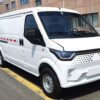
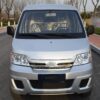
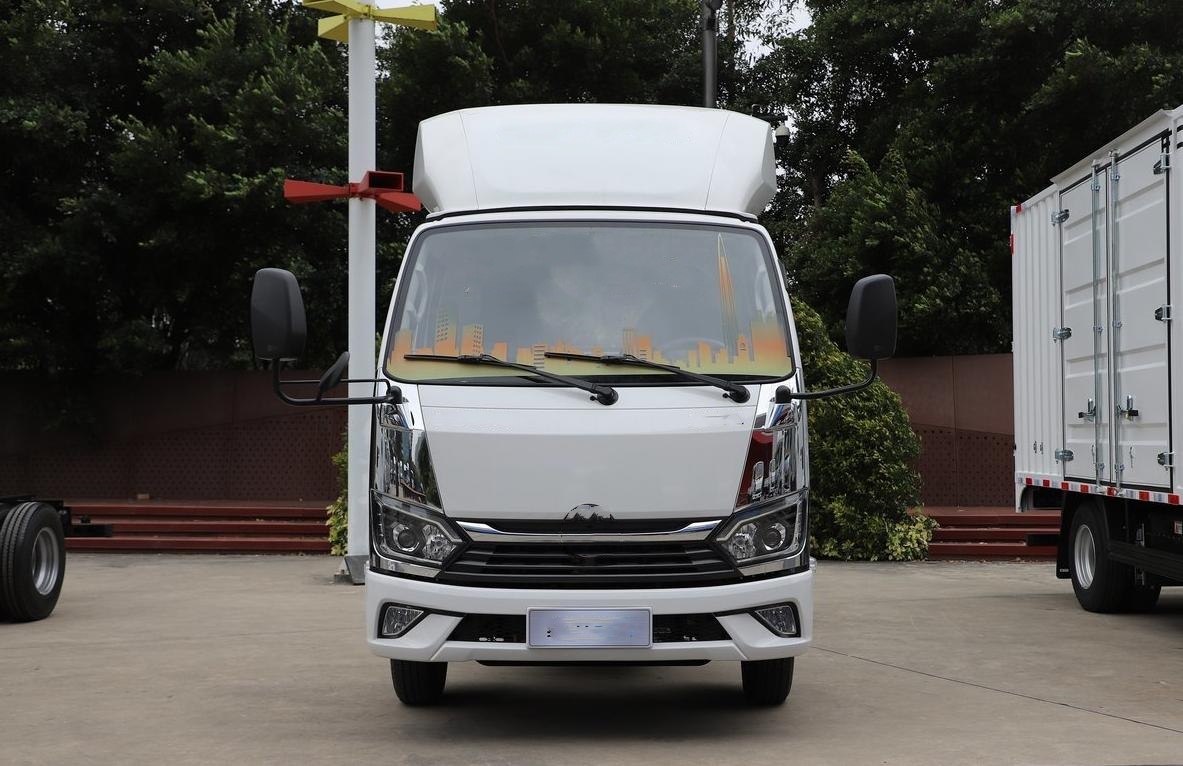
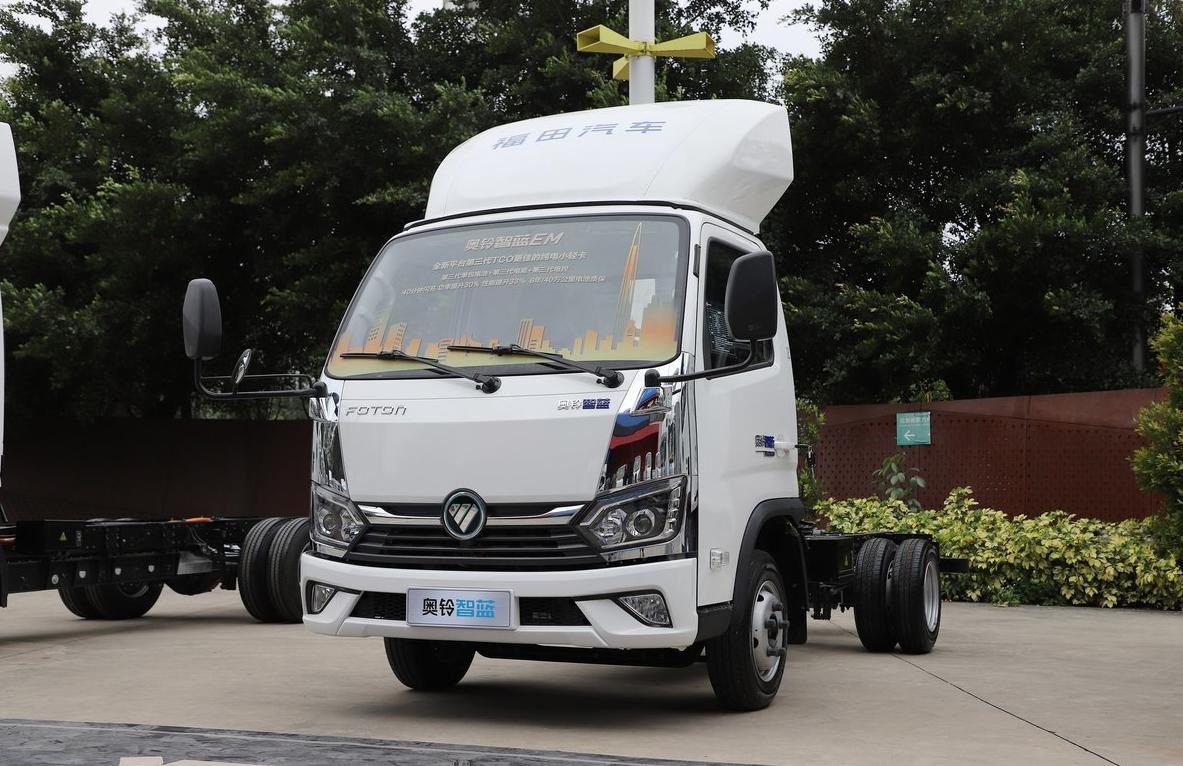
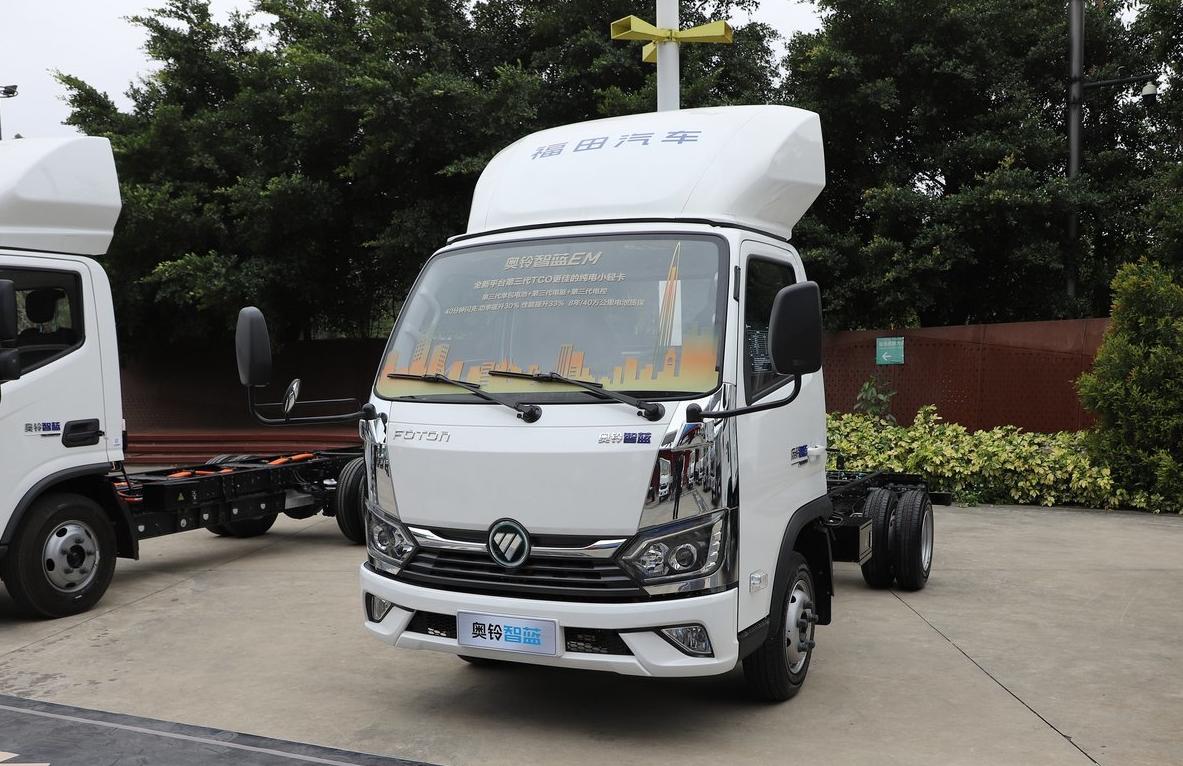
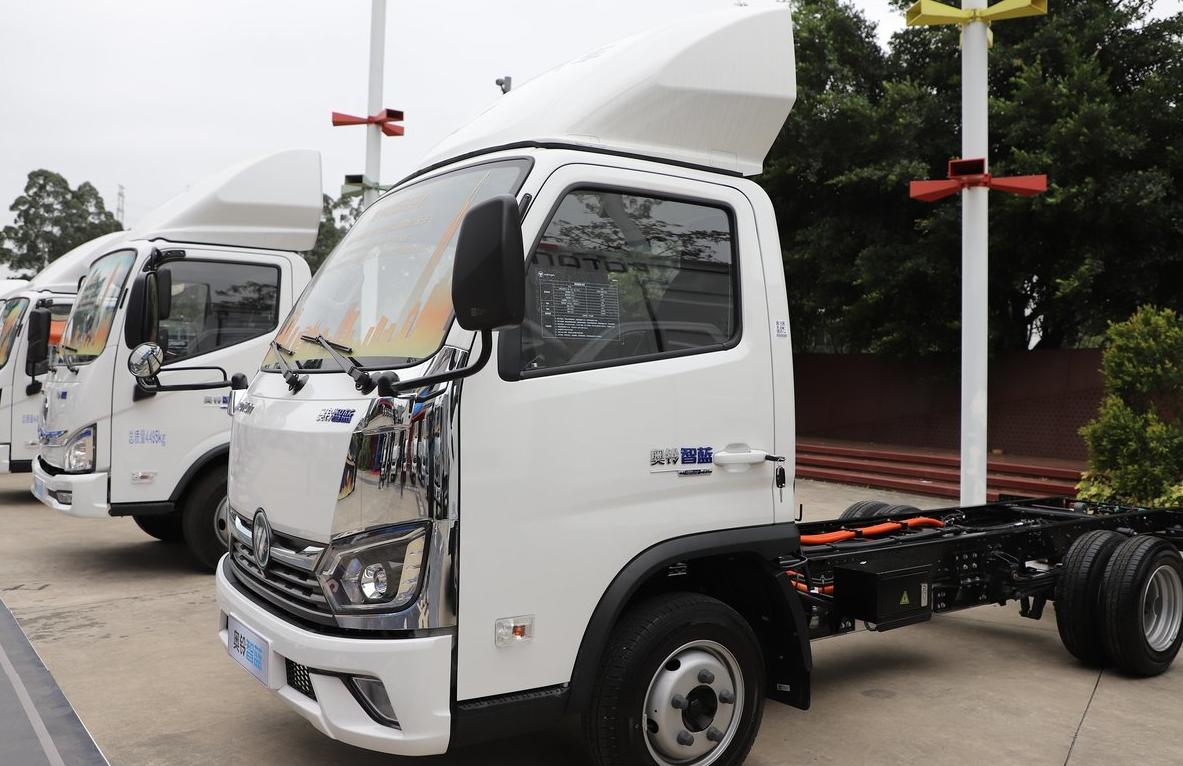
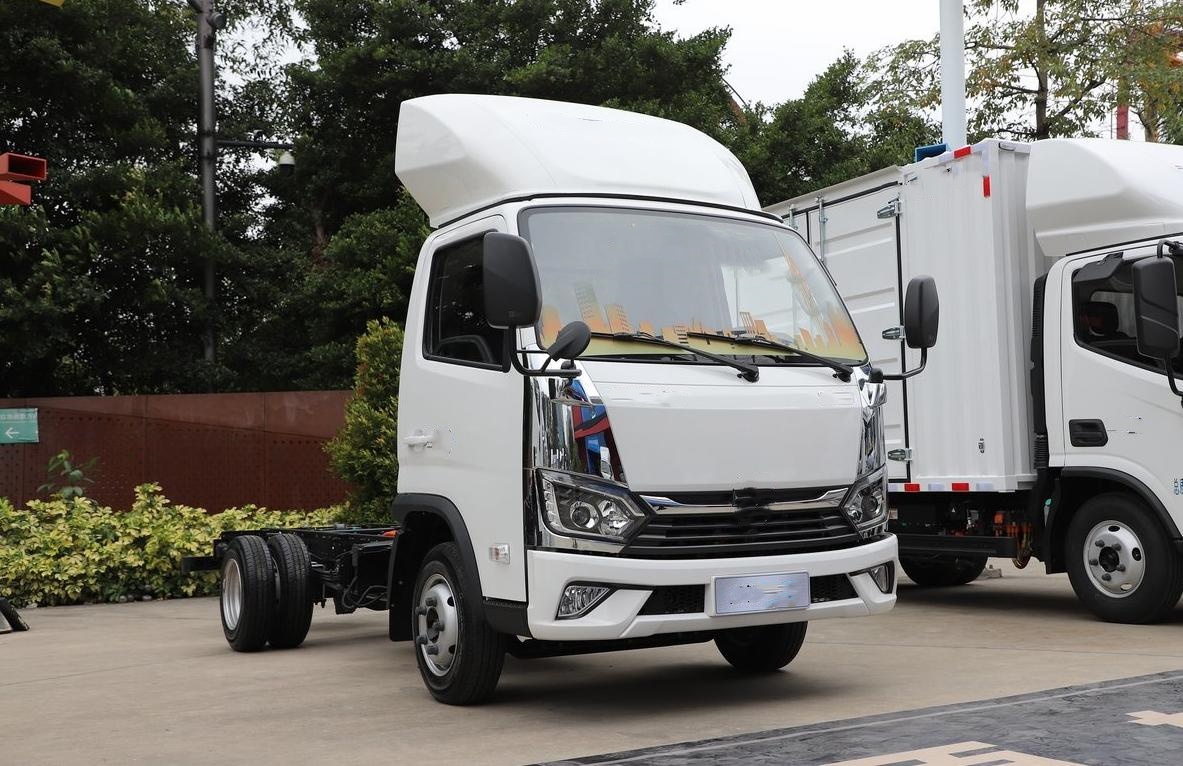
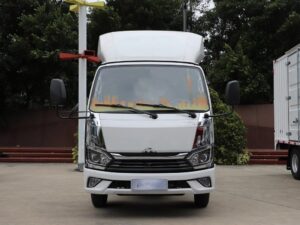
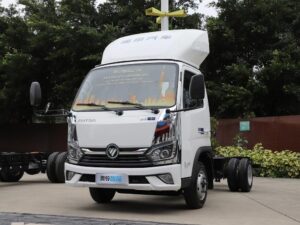
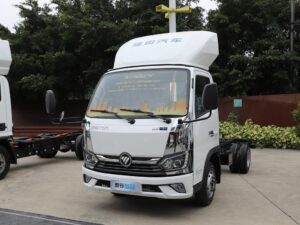

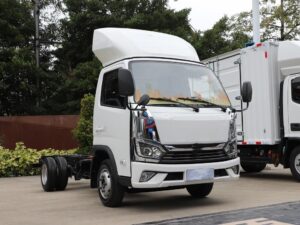
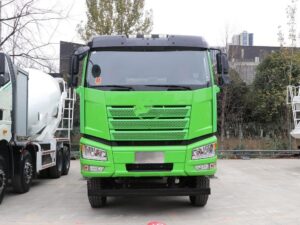
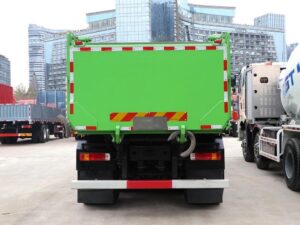
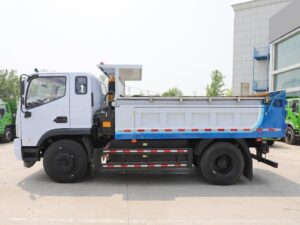
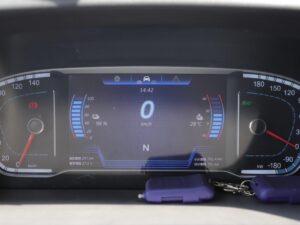
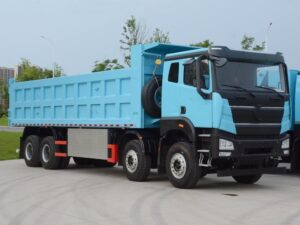
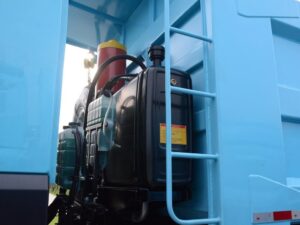
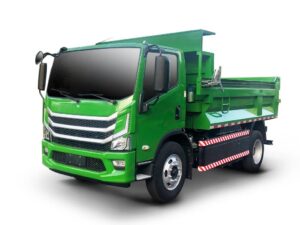
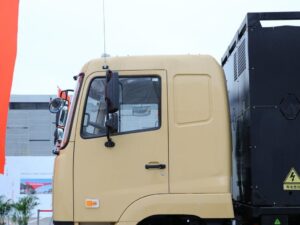
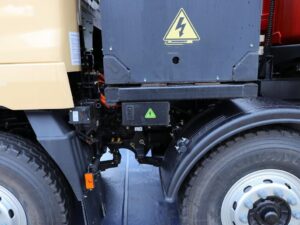
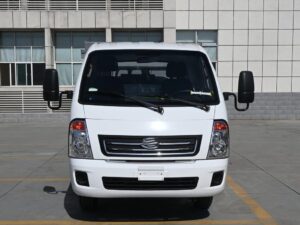
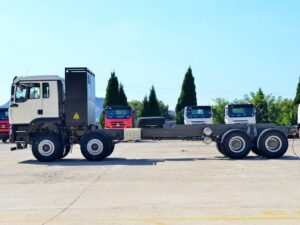
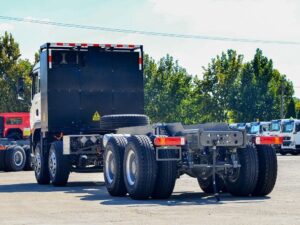
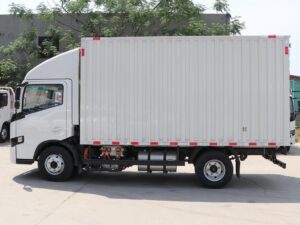
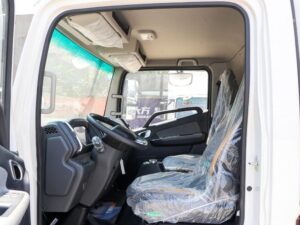
Hōʻike manaʻo
ʻAʻohe hōʻike manaʻo i kēia manawa.